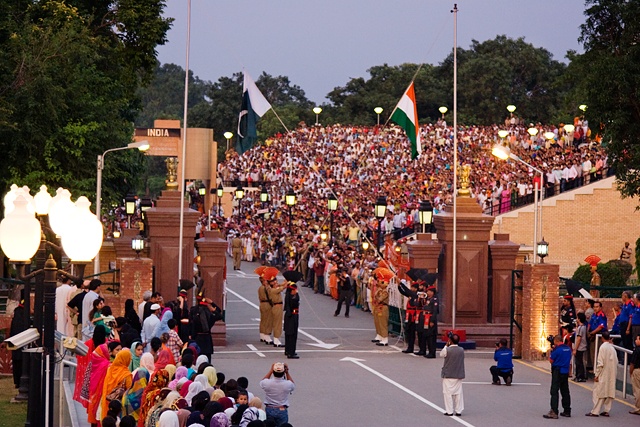
By Saba Zaheer
We all are well aware of the Cold War between major powers, United States of America and USSR. That period in history is considered as one of the most dangerous. Under the shadow of Cold War, the United States and USSR both strengthened their conventional capability which initiated arms race. Cold War era was known to be very deliberate era of mutual deterrence, where one step could escalate an all out war.
Cold War between United States and USSR was not the last standoff; in fact, it gave the idea of arms race to other weaker powers for their survival in this anarchic world. So they started cold wars and established their own comfort zones for survival. We much talk about nuclear proliferation but there is also cold war proliferation which is recurrently disregarded by the most.
The idea of cold war was adopted by South Asia’s most powerful countries including Pakistan, India and China. Cold War of the past between two major superpowers was known to be very dangerous, yet undoubtedly, the multiparty cold war between these three South Asian countries may cause greater danger for security and strategic environment in the region.
The triangle of three countries striving for domination is what will lead to arms race. In this triangle paths go like this: India responds to China’s emergence as a great power, Pakistan responds to India’s growing hegemony which in turn, creates disturbance. As China is one of the major powers out of three, it happens to posses the largest stockpile of conventional weapons. India goes blindly towards more and more inventions of conventional weapons just to achieve the status of China.
When India jumps into arms race to compete with China it creates chaos, in a sense that Pakistan gets depressed and for the cure of this kind of depression Pakistan automatically goes towards arms race. This is the most dangerous Cold War between three nuclear states which is predicament of the unknown.
This cold war is more catastrophic than the previous one, because Pakistan and India both are not the signatories to the NPT and FMCT. On the other hand, China is the signatory to the Non-Proliferation Treaty, a status that somehow facilitates Beijing to increase its conventional power in the name of civil security.
In South Asia, the threat of nuclear war is always present, because many antagonists’ rivalries have their nuclear weapons in the country. They pose serious threat to each other without any mercy. Past shows that India and Pakistan are not afraid to go to war but they are always ready for it.
On the other hand small countries get inspired by this competition and choose it for their survival due to risks caused by nuclear weapons of greater powers. Pakistan and India seem to have gone into the conventional arms race to prevent each other from direct attack.
Beside the interstate rivalries, there is also a risk of terrorist activity and militant networks, present in South Asia for quite some time. Pakistan is one of the country having a direct threat from terrorists. If Islamabad tries to confront the terrorists, there is always a risk of retaliation. At the same time, if these terrorist groups commit their attacks against any other states in the region, the blame is usually put on Pakistan, and the retaliation campaigns by these groups are normally launched against Pakistan.
Aside of confrontation of terrorist groups, there is an enormous risk of terrorists getting a hold of nuclear assets and since they, as non-state actors, are not bound by any international obligations or treaties, it is difficult to control them and their activities.
Due to the presence of terrorist groups in the region, the Cold War between India, Pakistan and China is much more sophisticated as far as nuclear and conventional weapons race is concerned, and therefore, more dangerous.
While tensions are high, it is imperative that the emotions on all three sides don’t graduate into mistakes and open confrontations. Any error or leak of false information may trigger an armed conflict. The region is in dire need of new security policies, new treaties and checks and balances between the regional nuclear states.




